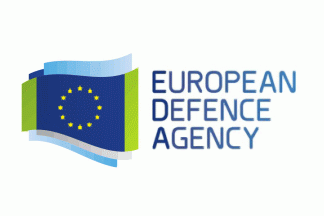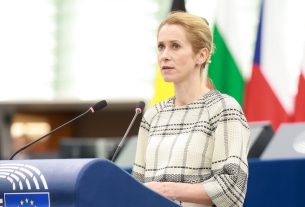Introduction
In a stark warning to the European Parliament, EU’s new Commissioner for Defence and Space, Thierry Breton, urged lawmakers to bolster Europe’s defence capabilities in response to the growing threat posed by Russian President Vladimir Putin. Speaking during his confirmation hearing on Wednesday, Breton emphasized that Europe’s need for enhanced security is not driven by political shifts in the United States, such as the election of former President Donald Trump, but rather by the continuing aggression and unpredictability of the Russian regime.
Breton’s comments highlight the strategic urgency of increasing Europe’s defence autonomy and improving military coordination to effectively counter any potential threats from Russia, particularly in light of the ongoing conflict in Ukraine.
1. A Rising Threat: Putin’s Expansionist Agenda
Since Russia’s annexation of Crimea in 2014, followed by its invasion of Ukraine in 2022, tensions between Russia and the West have escalated dramatically. The war in Ukraine has underscored the necessity for Europe to reconsider its reliance on external powers, particularly the United States, for military protection. Vladimir Putin’s aggressive actions and expansionist rhetoric have destabilized the security landscape of Europe, with many experts warning that the Kremlin’s ambitions extend beyond Ukraine.
In his address to the European Parliament, Thierry Breton emphasized that Europe must take greater responsibility for its own defence, warning that reliance on NATO and other external partners is insufficient. He pointed out that Russia’s threats are increasingly unpredictable and that European nations must enhance their military readiness in order to effectively defend their borders and interests.
2. Europe’s Strategic Defence Autonomy
Breton’s comments come at a time when the EU’s strategic autonomy—the idea of Europe being able to defend itself without overly relying on NATO or the US—has gained significant attention. The European Union has already taken steps to develop a more coordinated approach to defence and security policy, but the need for stronger defence capabilities remains urgent.
One of the key pillars of the EU’s defence strategy is the European Defence Fund (EDF), which allocates funding for the development and procurement of cutting-edge military technologies and the enhancement of defence cooperation between member states. Breton made it clear that further investments in cybersecurity, space technology, and AI-based defence systems are necessary to secure Europe’s future.
The EU’s defence strategy has been evolving since the creation of the European Defence Action Plan in 2016, but Breton’s comments underscore the need for faster, more decisive action in the face of growing geopolitical instability.
3. Avoiding Overreliance on the US and NATO
A central theme of Breton’s remarks was the need to diversify Europe’s security arrangements to avoid overreliance on external allies, particularly the United States. While the transatlantic alliance, notably NATO, has been a cornerstone of European security since World War II, the political uncertainties in the US—especially under the administration of Donald Trump—have raised questions about the future of the alliance.
Breton emphasized that while NATO remains critical, Europe must take greater control over its own defence. The European Commission has been working to enhance the EU’s defence cooperation, focusing on joint military research, rapid-response forces, and defence interoperability between member states.
The Russian invasion of Ukraine has provided a stark reminder of why Europe cannot afford to rely solely on NATO or the United States. The conflict has highlighted gaps in Europe’s ability to rapidly mobilize forces and respond to emerging threats. This is why Breton stressed the urgency of strategic autonomy, where EU nations would be able to act independently in the event of a crisis.
4. A Stronger European Defence Industry
Another key point raised by Breton was the need to strengthen the European defence industry to ensure Europe’s independence in terms of military capabilities. Currently, many EU countries rely on defence contractors from the US, such as Lockheed Martin and Raytheon, for weapons systems and other military equipment. Breton argued that EU-based defence companies must be supported through incentives for research and innovation, enabling them to produce the advanced technologies necessary for Europe’s defence.
Moreover, he emphasized the importance of upgrading European defence infrastructure, particularly in space and cyber capabilities. As new threats emerge, including cyberattacks and space-based warfare, Europe must ensure that it is equipped to defend against unconventional threats. This would also include enhancing the EU’s missile defence systems and strategic surveillance capabilities to respond quickly to emerging crises.
5. The Role of Space and Cybersecurity in Modern Defence
Breton, who previously served as France’s Minister for the Economy and Finance, also touched on the growing importance of space and cybersecurity in modern defence strategy. In recent years, space has become a critical domain for military and intelligence operations. The EU is already working on developing its space capabilities to enhance its security and surveillance infrastructure.
Cybersecurity is another key component of European defence. With an increasing number of cyberattacks targeting critical infrastructure, the EU must ensure its ability to protect its data, communications, and military systems from digital threats. Breton underscored that a cyber-defence strategy should be integrated into broader European security policies to safeguard against hostile state-sponsored hacking and cyberespionage.
6. Unity Within the EU on Defence Policy
One of the challenges to European defence autonomy is the differing priorities and defence budgets among EU member states. Germany, France, and other larger economies have historically been the leaders in European defence policy, while countries like Poland and the Baltic states have expressed a greater urgency in strengthening EU defences due to their proximity to Russia. Breton acknowledged these differences but stressed the importance of cohesion within the EU, emphasizing that unity in purpose and action is critical to ensuring the success of Europe’s future defence initiatives.
7. The Road Ahead: A Long-Term Vision
Breton’s remarks are a clear indication of the EU’s long-term vision for a more integrated, self-sufficient, and capable European defence sector. However, achieving this goal will require careful navigation of the complex political and economic realities of the EU’s 27 member states. The Russian threat and the ongoing conflict in Ukraine have brought these issues to the forefront, but long-term solutions will require sustained investment in defence infrastructure, technology, and strategic alliances.
Conclusion
Thierry Breton’s warning to MEPs highlights the urgent need for Europe to enhance its defence capabilities in response to the growing threat from Russia. With an eye toward strategic autonomy and a more unified European defence policy, the EU must increase its investments in space, cybersecurity, and military innovation. Strengthening Europe’s defence industry and ensuring that Europe can independently secure its interests without relying on external partners like the US is essential in the face of rising geopolitical tensions. The EU’s ability to build a more robust, resilient defence strategy will be critical not just for its own security, but also for the stability of the wider international order.
References:
- EU Commission – Defence and Security
- Politico – EU Defence Strategy
- European Council – Strategic Autonomy in Defence



